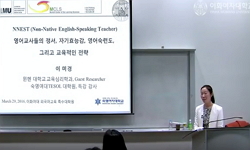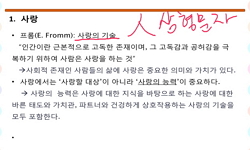The purpose of this study was to explore the effects of the Wonbuddhism Maum Study-based Group Counseling on Marital Satisfaction, Self-esteem, Mood, Self-efficacy, and Locus of Control. Untreated control group design with pretest-post-test, and pos...
http://chineseinput.net/에서 pinyin(병음)방식으로 중국어를 변환할 수 있습니다.
변환된 중국어를 복사하여 사용하시면 됩니다.
- 中文 을 입력하시려면 zhongwen을 입력하시고 space를누르시면됩니다.
- 北京 을 입력하시려면 beijing을 입력하시고 space를 누르시면 됩니다.
원불교 마음공부에 기반한 집단상담이 부부의 결혼만족도, 자아존중감, 기분, 자기효능감 및 통제소재에 미치는 효과 = The Effects ot the Wonbuddhism Maum Study-Based Group Counseling on Marital Satisfaction, Self-esteem. Mood, Self-efficacy, and Locus of Control
한글로보기https://www.riss.kr/link?id=T11802929
- 저자
-
발행사항
전주: 전북대학교 대학원, 2009
-
학위논문사항
학위논문(석사) -- 전북대학교 대학원 대학원 , 심리학 , 2009. 8
-
발행연도
2009
-
작성언어
한국어
- 주제어
-
발행국(도시)
전북특별자치도
-
기타서명
The Effects ot the Wonbuddhism Maum Study-Based Group Counseling on Marital Satisfaction, Self-esteem. Mood, Self-efficacy, and Locus of Control
-
형태사항
iv, 61p: 그림,표; 26cm
-
일반주기명
전북대학교 논문은 저작권에 의해 보호받습니다.
지도교수:김정희
참고문헌 : p.35-39 - 소장기관
-
0
상세조회 -
0
다운로드
부가정보
다국어 초록 (Multilingual Abstract)
Keywords : Wonbuddhism mind study, marital satisfaction, self-esteem, self-efficacy, mood, locus of control
The purpose of this study was to explore the effects of the Wonbuddhism Maum Study-based Group Counseling on Marital Satisfaction, Self-esteem, Mood, Self-efficacy, and Locus of Control. Untreated control group design with pretest-post-test, and post 4 weeks. was used. The instruments was used not revised, some revised previous researchers' or developed by this researcher. The Counseling Program was developed based on Won Buddhism Maum Study by this researcher. The data was analyzed by using SPSS PC 11.5. Sixteen people in the Experimental group participated in the 'Maum-Study Group Counseling Program' through articles in the daily newspapers and Daumcafe 'Maum-Study', and seventeen people in the control group suggested to take the program. As a result of analysis, Marital satisfaction was effective just in the post test(p<.001), but not be continued the effect until post 4 weeks(p=.074). Self-esteem and mood were effective in the post test(p<.001, p<.001) and in the post 4 weeks(p<.001, p<.05). Self-efficacy was effective in both groups in the post test(p<.001, p<.001) and post 4 weeks(p<.001, p<.05), but there were no differences between groups. Locus of Control was not satisfactory with Homogeneity, even if it seemed to be differences between groups and times. So for Marital Satisfaction, strategies like the on-line Maumdiary were needed to be continued. Self-efficacy was also needed to prevent the errors of repetitive tests or to revise items. For Locus of Control it is needed to meet the requirement for homogeneity cautiously in selecting the control group. Future researches are suggested to develop other versions to new cohort groups.
Keywords : Wonbuddhism mind study, marital satisfaction, self-esteem, self-efficacy, mood, locus of control
목차 (Table of Contents)
- 표 ․ 그림 목차 ⅱ
- Abstract ⅲ
- 서 론 1
- 방 법 12
- 결 과 19
- 표 ․ 그림 목차 ⅱ
- Abstract ⅲ
- 서 론 1
- 방 법 12
- 결 과 19
- 논 의 30
- 참고문헌 35
- 국문요약 40
- 부 록 41












